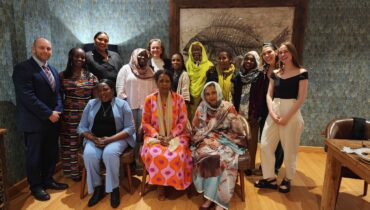On November 8, 2015, Myanmar will hold its first general elections since the country transitioned from a military junta to a quasi-civilian government in 2011. The presidency, as well as seats in the national parliament and state and regional assemblies, are at stake. Many see this election as a potential opportunity for further reform, especially if Aung San Suu Kyi’s party, the National League for Democracy (NLD), gains a large parliamentary majority. The lead-up to the elections, however, has been rife with religious and ethnic tensions, as well as the continued sidelining of women. The country’s political fate rests on this election and its results, but continuing gender and ethnic discrimination and marginalization jeopardize a possible future as a fair and functioning democracy.
Despite opening up in recent years, Myanmar has been wracked by conflict between majority Buddhists and minority ethnic and religious groups that threatens any semblance of progress toward democracy. Tensions between Buddhists and Muslims, especially the Rohingya, are particularly fraught. The Rohingya are not recognized as citizens and are subject to a number of discriminatory and oppressive government policies, such as restrictions on their ability to work, movement, number of children, and freedom to marry. Rohingya activist Wai Wai Nu states that in this conflict, “the vast majority of the victims [are] women and children.” Rohingya women experience double discrimination because of their gender and their membership in a persecuted minority group, and are particularly vulnerable to sexual and gender-based violence, human trafficking, and the aforementioned discriminatory pregnancy and marriage regulations. Radical Buddhist nationalists have exacerbated this conflict with xenophobic campaigns, condemning all Muslims as radical Islamic terrorists and advocating for recently passed restrictive ‘race and religion protection’ laws on marriage, religion, and population that target Muslims. These laws promote intolerance and marginalization, and impede reforms to advance the country’s democratization.
These tensions have led to discrimination in the electoral process. Until recently, many Rohingya held white identity cards, which serve as temporary identification for the non-citizens. These white cards allowed the Rohingya to vote in previous elections. In early 2015, President Thein Sein announced that the white cards would expire at the end of March, and that Rohingya would have to undergo citizenship tests in order to obtain new identification. Due to these actions and the onerous citizenship tests, thousands of Rohingya have been struck from the electoral rolls, including current members of Parliament.
Discrimination against Muslims has manifested in other aspects of the electoral process: despite international pressure, the electoral commission has disqualified about 100 candidates, mostly Muslim, from participating in the elections. Some critics allege that Aung San Suu Kyi has not been adequately responsive or sympathetic to the discrimination against Muslims, allegations that may be supported in part by the fact that, despite efforts to field ethnically diverse candidates, none of her party’s 1,151 regional and national candidates are Muslim.
The election process has also sustained the ongoing marginalization of women in Myanmar‘s political life. As one women’s activist states, in Myanmar, “…traditional, cultural, and religious practices” have led women to be treated as a “subordinate group.” Currently, women are underrepresented in government, due in some measure to the political dominance of the military, from which women are mostly excluded. In the national legislature, women hold less than six percent of the 479 seats—the lowest proportion of female representation of all Southeast Asian countries—and make up less than four percent of all members of state and local parliaments. The upcoming elections will not correct this imbalance: of the 6,189 registered electoral candidates, only 800 are women. Women represent seven and fifteen percent of the ruling Union Solidarity and Development Party and the NLD’s candidates, respectively. Women have also been underrepresented in the country’s peace talks with armed ethnic groups: only one woman was part of the team that negotiated the recent National Ceasefire Agreement with these groups, and the agreement does not contain the anticipated commitment to a thirty percent quota of women in future political dialogue.
These dismal numbers can be explained in part by the systematic and structural barriers preventing greater political participation by women, including the previously mentioned military dominance, but also by antiquated attitudes toward women and their participation in politics. For example, a leader of one political party has called women useless, while a female NLD member has explained that it is difficult to find women candidates because women are immersed in duties like taking care of the kitchen and “changing the flowers for Buddha,” and therefore cannot give the same time to politics as men. When parties are more open, they often relegate women to “supportive” roles, performing undesirable or menial tasks like making coffee. If women do speak out, they risk their personal safety: when women’s organizations expressed their opposition to the recently enacted restrictive race and religion laws, they were harassed and received death threats. With the propagation of such attitudes and the small number of female candidates, prospects for the protection of women’s rights and their ability to participate politically post-election seem dim.
While some advocates insist that the November election will be the “freest, fairest vote seen in the country…since 1990,” many obstacles to a genuinely representative and participatory election remain. The full participation of all citizens, including women and members of ethnic minority groups, is essential to ensuring democracy and socio-economic progress in Myanmar.


